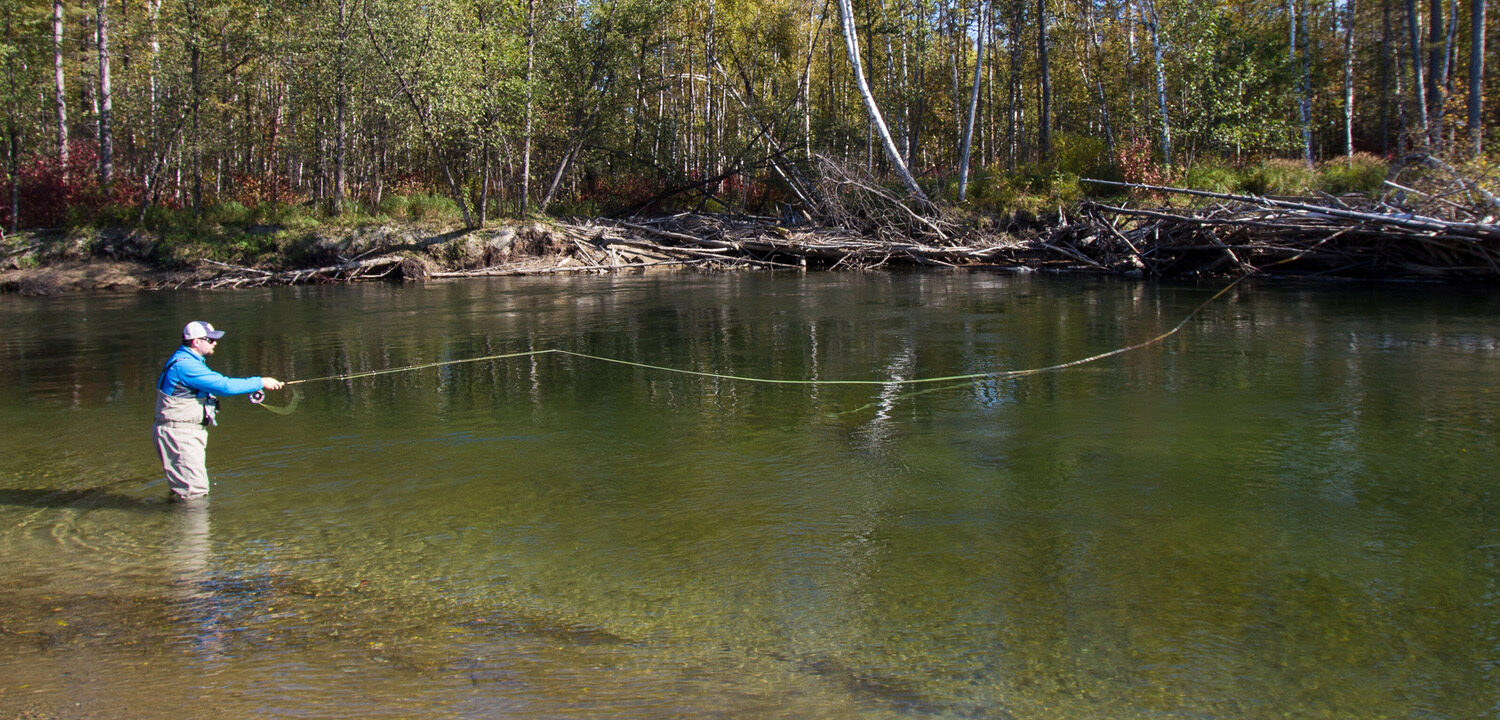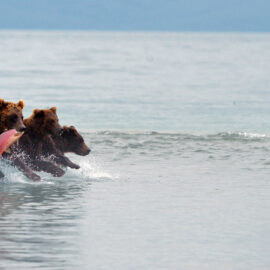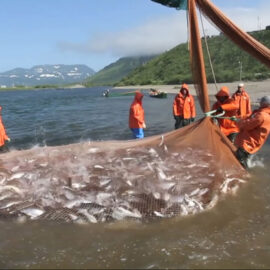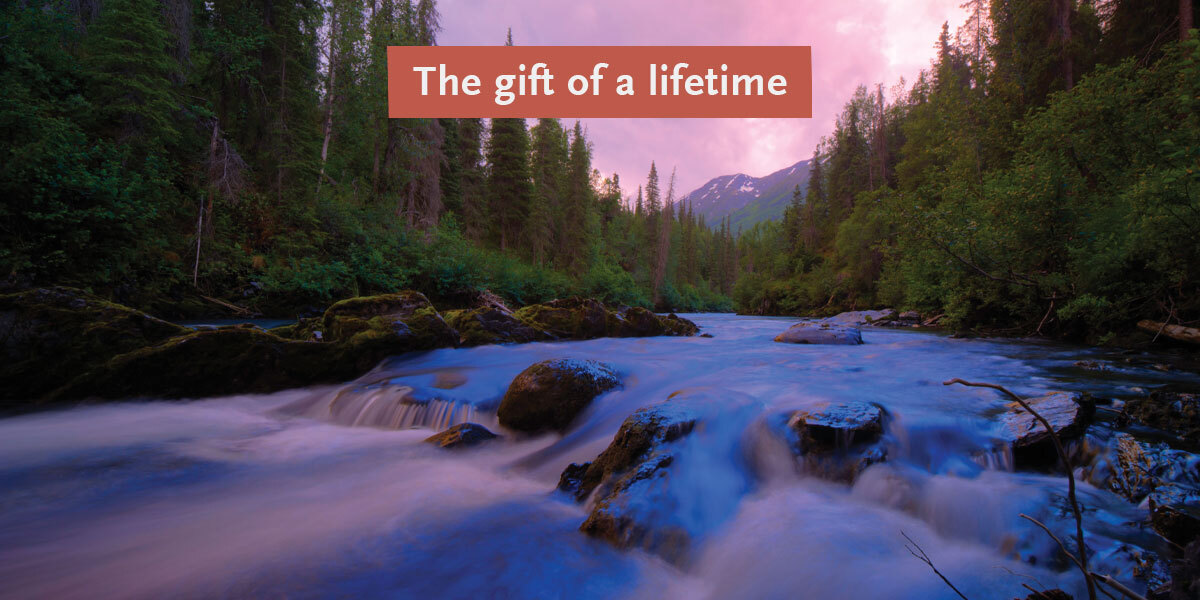The Russian Salmon Association is redoubling efforts to win fly fishing hearts and minds.
Fishing is a national passion in Russia, which makes sense in a country with beautiful salmon-rich rivers and vast wilderness expanses. Yet of Russia’s 145 million-some residents, only a few thousand might have some practice tying on a fly.
“Traditionally, you fish for keeps in Russia,” says Mariusz Wroblewski, Wild Salmon Center’s Western Pacific Program Director. “But now, that’s all starting to change.”
Fly fishing is on the rise in Russia, thanks a decade of creative—and well-connected—advocacy by the Russian Salmon Association, a Moscow-based conservation group founded in 2009 with the support of WSC and a group of Russian ecologists, fishermen, and scientists.
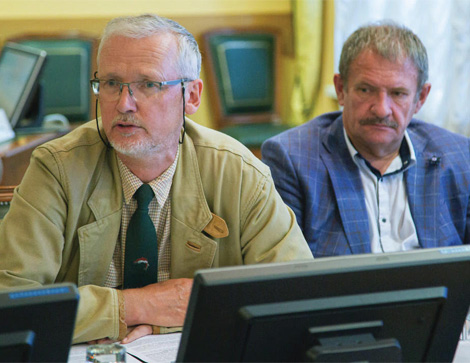
Among its conservation aims, the young nonprofit is increasingly focused on building Russian support for the popular Western practice of catch-and-release fishing. According to RSA advisory board chairman Gennady Zharkov, catch-and-release can play a key role in protecting vulnerable, long-lived wild fish like Kola Peninsula salmon and Siberian taimen, while also supporting new forms of tourism.
The problem, says Zharkov, is that Russian fishing laws weren’t built with catch-and-release in mind. That left anglers and lodge owners without a way to lobby the federal government to make catch-and-release a formal conservation tool for species like salmon and taimen.
“Many responsible and educated anglers find themselves in an ambiguous position,” says Zharkov. “They’re ready for [federally regulated] catch-and-release, but under existing law, it’s impossible.”
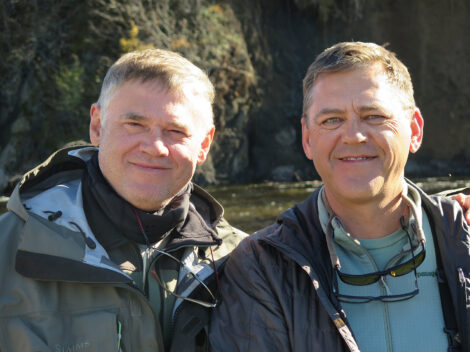
Alexander Abramov and WSC’s Mariusz Wroblewski on the Tugur River. PC: Guido Rahr.
In 2011, several prominent Russian business leaders—including avid fly fishermen Ilya Sherbovich (pictured top fishing the Tugur River) and Alexander Abramov (pictured at right)—joined the organization’s board. The association channeled that new political clout into its work to update Russia’s recreational fishing rules to recognize catch-and-release, for the first time, as a legitimate way to fish. That work got a big boost in 2018, when RSA, previously operating as the Russian Salmon Fund, rebranded and helped pass major federal legislation that provided a new framework for regulating the nation’s sport fishing.
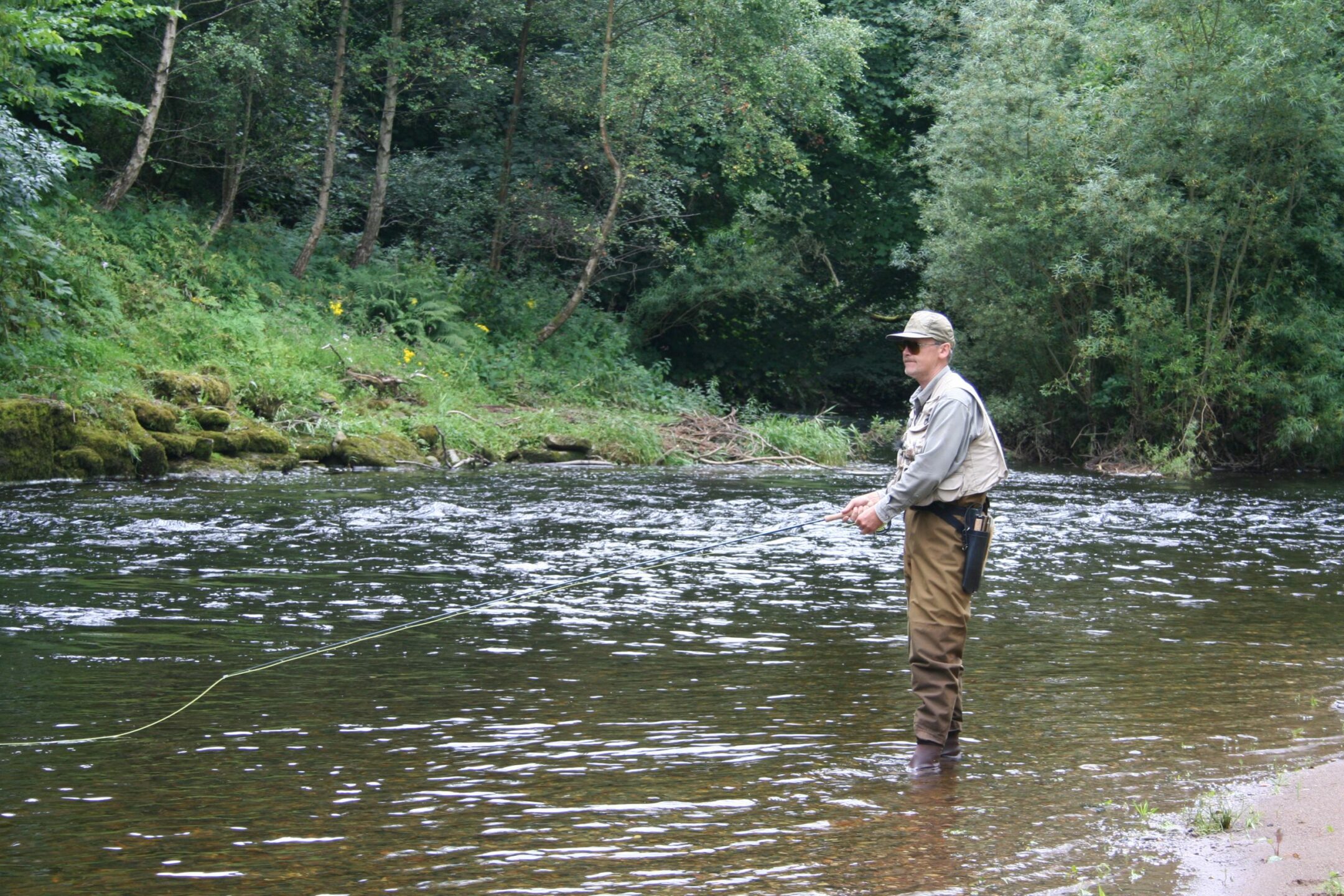
Now, RSA is launching an ambitious new campaign, with WSC’s help, to study and then broadcast the benefits of catch-and-release. Phase one, says Zharkov, involves a partnership with VNIRO, the Russian government’s lead science agency, to generate scientific research on catch-and-release, with the aim of securing a federal recommendation for regional policymakers to use it a conservation tool. Next, the organization wants to popularize the concept via a major marketing campaign—media channels, social networks, festivals, and fishing camps—to Russia’s provinces and the general public.
WSC is partnering with RSA to help the campaign on multiple fronts, including enlisting experts like Dr. Mihail Skopets to develop catch-and-release guidelines and conduct scientific surveys, along with supporting the production of educational films and brochures for nationwide distribution.
“For valuable species like Atlantic salmon, Kamchatka steelhead, and taimen, catch-and-release is practically the only way to preserve these species while allowing sport fishing for them,” says Zharkov. “Sport fishing operators have been practicing fishing on a catch-and-release basis for a long time—sometimes more than 25 years—and have a huge practical knowledge that it does protect fish populations.”
The association channeled that new political clout into its work to update Russia’s recreational fishing rules to recognize catch-and-release, for the first time, as a legitimate way to fish.
